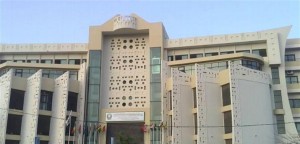The Inter-Governmental Action Group against Money Laundering and Terrorism Financing in West Africa (GIABA)
|
The Inter-Governmental Action Group against Money Laundering in West Africa (GIABA) was established on 10th December 1999 by the Authority of Heads of State and Government of the ECOWAS. The main focus area of GIABA at inception was the protection of West African economies and financial systems against Money Laundering. In January 2006, the Statutes of GIABA were revised to reflect the growing link between Money Laundering and Terrorist Financing, following terrorist attacks on the United States of America on September 11, 2002. This is why Counter- Financing of Terrorism was incorporated into GIABA’s mandate. So in addition to being a reflection of the willingness of the Authority of ECOWAS Heads of State and Government to fight against ML and TF, GIABA is also a Financial Action Task Force-Style Regional Body (FSRB) that fully adheres to the FATF 40 + 9 Recommendations. The creation of GIABA is a major response and contribution of the ECOWAS to the fight against money laundering. GIABA is a specialized institution of ECOWAS that is responsible for strengthening the capacity of member states towards the prevention and control of money laundering and terrorist financing in the region. Apart from member states, GIABA grants Observer Status to African and non-African States, as well as Inter-Governmental Organizations that support its objectives and actions and which have applied for observer status. The following organizations are also eligible for observer status within GIABA; the Central Banks of Signatory States, regional Securities and Exchange Commissions, UEMOA, Banque Ouest Africaine pour le Développement (BOAD), the French Zone Anti-Money Laundering Liaison Committee (Conseil Régional de l’Epargne Public et des Marchés Financiers), the African Development Bank (ADB), the United Nations Office on Drugs and Crime (UNODC), the World Bank, the International Monetary Fund (IMF), the FATF, Interpol, WCO, the Commonwealth Secretariat, and the European Union. GIABA’s Mission is to: |




